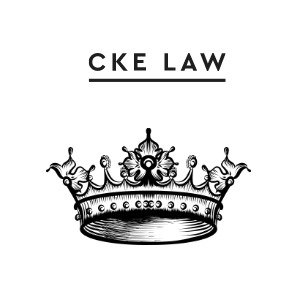Best Divorce & Separation Lawyers in Manchester
Share your needs with us, get contacted by law firms.
Free. Takes 2 min.
Free Guide to Hiring a Family Lawyer
List of the best lawyers in Manchester, United Kingdom
United Kingdom Divorce & Separation Legal Questions answered by Lawyers
Browse our 2 legal questions about Divorce & Separation in United Kingdom and read the lawyer answers, or ask your own questions for free.
- Divorce/chid custody and responsibility
- A judgement is passed that the mother has custody of a child while the father has visitation rights and is responsible for the child welfare, maintenance, education etc. but the father is only responsible for the child's education leaving other responsibilities for the mother, is it possible for the mother... Read more →
-
Lawyer answer by CIMA LEGAL CORPORATION
En temas del derecho de menores, no es posible que, de forma unilateral, la madre pueda decidir sacar al niño del país sin consentimiento del padre. Dependiendo de la legislación del país donde se encuentre, existen varios requisitos para hacerlo....
Read full answer - if the husband is living abroad and wants to divorce his wife then how it will be?
- I am living in England.if the husband is living abroad and wants to divorce his wife then how it will be?
-
Lawyer answer by Franklyn & Partners
Good day. It is not a complex situate and we can help. We are a law firm that has license to practice in England.
Read full answer
About Divorce & Separation Law in Manchester, United Kingdom
In Manchester, and across the United Kingdom in general, divorce and separation laws are governed under the Matrimonial Causes Act 1973, the Family Law Act 1996, and recently changed Divorce, Dissolution and Separation Act 2020. This encompasses the rules and regulations on the dissolution of marriages, legal separations and arrangements relating to property and children following the breakdown of a marriage.
Why You May Need a Lawyer
Engaging a lawyer in divorce or separation proceedings can be essential, especially when complex issues such as child custody, financial settlements, and property division are involved. Lawyers can provide the necessary legal advice and representation, help clarify your rights and obligations, navigate through the often complex legal process, ensure fair settlements, and work to protect your interests.
Local Laws Overview
The British legal system requires that you have been married for at least one year before you can apply for a divorce. Grounds for divorce typically include adultery, unreasonable behaviour, desertion, separation for more than two years with consent, or separation for more than five years without consent. Importantly, the Divorce, Dissolution and Separation Act 2020 enables couples to apply for a ‘no-fault divorce’, removing the requirement to assign blame for the marriage breakdown.
Frequently Asked Questions
How long does it take to get a divorce?
On average, it takes around 4 to 6 months to finalize a divorce if it is uncontested, but it may take longer if there are complications or disputes.
Can I get a divorce without my partner's consent?
If you have been separated for at least five years, you can apply for a divorce without your partner's consent.
How are assets divided in a divorce?
Assets are divided based on the 'needs principle' and the court takes into account factors such as income, earning capacity, property, and other financial resources.
Do I need to go to court?
Not all divorce cases need to go to court. If both parties agree on arrangements regarding finances and child custody, it will not be necessary to attend court.
How is child custody determined?
Child custody is determined based on the best interests of the child. Factors like the child's wellbeing, the child's wishes and desires (depending on age and understanding), and each parent's ability to meet the child's needs are considered.
Additional Resources
The Citizens Advice Manchester and Manchester Law Society both provide useful resources and access to legal professionals specialized in divorce and separation cases. Additionally, the UK government’s website provides clear guides on the process of divorce.
Next Steps
If you are considering divorce or going through a separation, it is recommended to seek legal advice. Contact a legal professional or access free resources from trusted local organisations. If you decide to hire a lawyer, ensure they specialise in family law. Also, gather all relevant documents (like marriage certificates, financial records etc.) to help your case.
Lawzana helps you find the best lawyers and law firms in Manchester through a curated and pre-screened list of qualified legal professionals. Our platform offers rankings and detailed profiles of attorneys and law firms, allowing you to compare based on practice areas, including Divorce & Separation, experience, and client feedback.
Each profile includes a description of the firm's areas of practice, client reviews, team members and partners, year of establishment, spoken languages, office locations, contact information, social media presence, and any published articles or resources. Most firms on our platform speak English and are experienced in both local and international legal matters.
Get a quote from top-rated law firms in Manchester, United Kingdom — quickly, securely, and without unnecessary hassle.
Disclaimer:
The information provided on this page is for general informational purposes only and does not constitute legal advice. While we strive to ensure the accuracy and relevance of the content, legal information may change over time, and interpretations of the law can vary. You should always consult with a qualified legal professional for advice specific to your situation.
We disclaim all liability for actions taken or not taken based on the content of this page. If you believe any information is incorrect or outdated, please contact us, and we will review and update it where appropriate.















